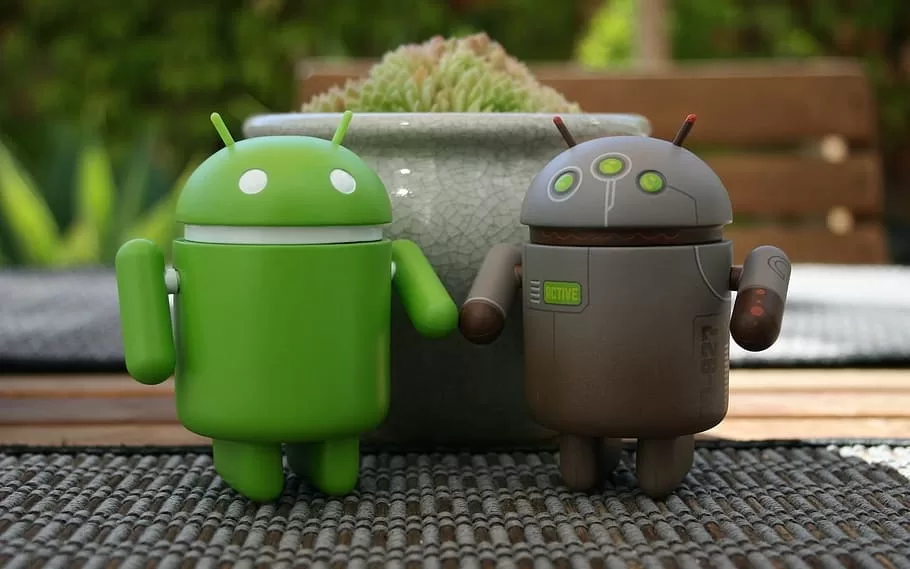Table of Contents

Quick blog posting showing you the build.gradle.kts version of the default build.gradle file from the “empty activity” Android Studio template.
This post will go stale fast, get it whilst its hot. 🙂
The original templates come from the New Project, other templates are explained here: https://developer.android.com/studio/projects/templates
Google has an explainer of converting build configuration scripts from Groovy to Kotlin: https://developer.android.com/build/migrate-to-kotlin-dsl
Gradle has a primer for showing what build.gradle commands in Groovy look like in Kotlin build.gradle.kts files: https://docs.gradle.org/current/userguide/kotlin_dsl.html
Finally Google announced that Kotlin build.gradle.kts would be the new default for build configuration files: https://android-developers.googleblog.com/2023/04/kotlin-dsl-is-now-default-for-new-gradle-builds.html
Here is the current new project Groovy build.gradle file:
Groovy DSL
plugins
id 'com.android.application'
id 'org.jetbrains.kotlin.android'
android
namespace 'com.blundell.demo'
compileSdk 33
defaultConfig
applicationId "com.blundell.demo"
minSdk 29
targetSdk 33
versionCode 1
versionName "1.0"
testInstrumentationRunner "androidx.test.runner.AndroidJUnitRunner"
vectorDrawables
useSupportLibrary true
buildTypes
release
minifyEnabled false
proguardFiles getDefaultProguardFile('proguard-android-optimize.txt'), 'proguard-rules.pro'
compileOptions
sourceCompatibility JavaVersion.VERSION_1_8
targetCompatibility JavaVersion.VERSION_1_8
kotlinOptions
jvmTarget="1.8"
buildFeatures
compose true
composeOptions
kotlinCompilerExtensionVersion '1.3.2'
packagingOptions
resources
excludes += '/META-INF/AL2.0,LGPL2.1'
dependencies
implementation 'androidx.core:core-ktx:1.8.0'
implementation platform('org.jetbrains.kotlin:kotlin-bom:1.8.0')
implementation 'androidx.lifecycle:lifecycle-runtime-ktx:2.3.1'
implementation 'androidx.activity:activity-compose:1.5.1'
implementation platform('androidx.compose:compose-bom:2022.10.00')
implementation 'androidx.compose.ui:ui'
implementation 'androidx.compose.ui:ui-graphics'
implementation 'androidx.compose.ui:ui-tooling-preview'
implementation 'androidx.compose.material3:material3'
testImplementation 'junit:junit:4.13.2'
androidTestImplementation 'androidx.test.ext:junit:1.1.5'
androidTestImplementation 'androidx.test.espresso:espresso-core:3.5.1'
androidTestImplementation platform('androidx.compose:compose-bom:2022.10.00')
androidTestImplementation 'androidx.compose.ui:ui-test-junit4'
debugImplementation 'androidx.compose.ui:ui-tooling'
debugImplementation 'androidx.compose.ui:ui-test-manifest'
>> You probably are looking for this KTS <<
And here is the Kotlin build.gradle.kts version.
Kotlin DSL
plugins
id("com.android.application")
id("org.jetbrains.kotlin.android")
android
namespace = "com.blundell.demo"
compileSdkVersion(33)
defaultConfig
applicationId = "com.blundell.demo"
minSdk = 29
targetSdk = 33
versionCode = 1
versionName = "1.0"
testInstrumentationRunner = "androidx.test.runner.AndroidJUnitRunner"
vectorDrawables
useSupportLibrary = true
buildTypes
release
isMinifyEnabled = false
proguardFiles(
getDefaultProguardFile("proguard-android-optimize.txt"),
"proguard-rules.pro"
)
compileOptions
sourceCompatibility = JavaVersion.VERSION_11
targetCompatibility = JavaVersion.VERSION_11
kotlinOptions
jvmTarget = "11"
buildFeatures
compose = true
composeOptions
kotlinCompilerExtensionVersion = "1.3.2"
packagingOptions
resources
excludes += listOf("/META-INF/AL2.0,LGPL2.1")
dependencies
implementation("androidx.core:core-ktx:1.8.0")
implementation(platform("org.jetbrains.kotlin:kotlin-bom:1.8.0"))
implementation("androidx.lifecycle:lifecycle-runtime-ktx:2.3.1")
implementation("androidx.activity:activity-compose:1.5.1")
implementation(platform("androidx.compose:compose-bom:2022.10.00"))
implementation("androidx.compose.ui:ui")
implementation("androidx.compose.ui:ui-graphics")
implementation("androidx.compose.ui:ui-tooling-preview")
implementation("androidx.compose.material3:material3")
debugImplementation("androidx.compose.ui:ui-tooling")
debugImplementation("androidx.compose.ui:ui-test-manifest")
testImplementation("junit:junit:4.13.2")
androidTestImplementation("androidx.test.ext:junit:1.1.5")
androidTestImplementation("androidx.test.espresso:espresso-core:3.5.1")
androidTestImplementation(platform("androidx.compose:compose-bom:2022.10.00"))
androidTestImplementation("androidx.compose.ui:ui-test-junit4")
Hope that quick conversion to Kotlin build.gradle.kts helps you! And hopefully this blog post will be deprecated when they update the templates to create Kotlin build Gradle files. 🙂

